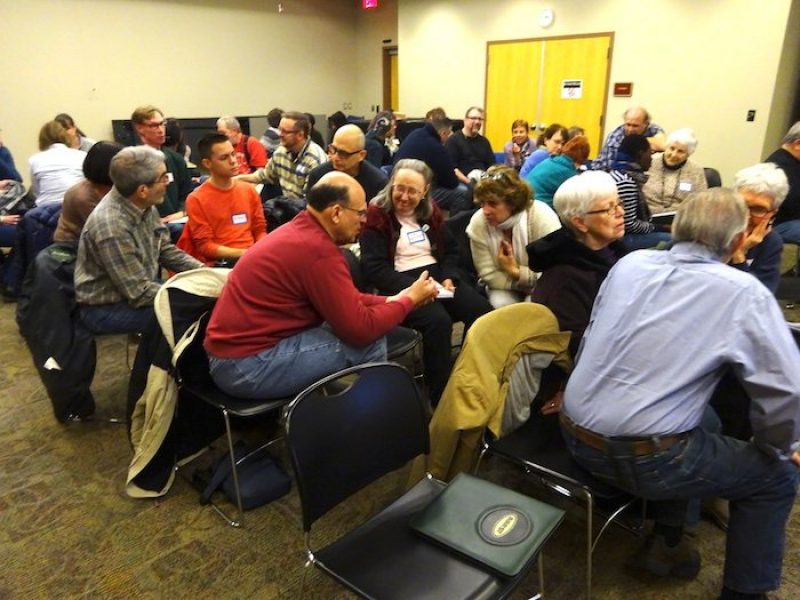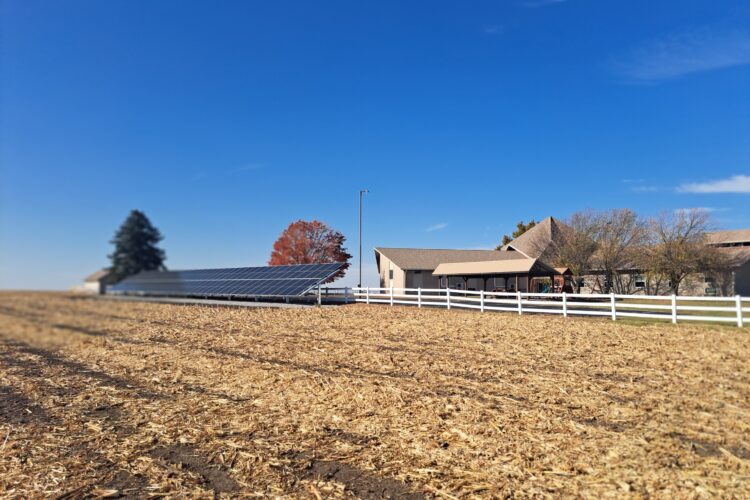Project Drawdown In Practice

By Ruth Darlington.
WHEN PAUL HAWKEN’S book Drawdown: The Most Comprehensive Plan Ever Proposed to Reverse Global Warming came out in 2017, many hailed it as the “new Green Bible.” I rushed to get a copy. When I held it in my hands, it felt like proof that there really was something we could do to stop global warming. After all, over 200 experts had found 80 solutions already in use around the world and 20 more in development and had shown how they could reduce greenhouse gas emissions to levels needed to turn back global warming. Here was hope at last!
But the book focused on what others were doing, not an action plan for me. Then I received an invitation to an “Introduction to Project Drawdown” workshop at a nearby public library led by the Pachamama Alliance, a group “dedicated to bringing forth an environmentally sustainable, spiritually fulfilling, socially just human presence on this planet.” Their workshop, created in partnership with Project Drawdown, offered the opportunity to study the solutions in Drawdown with an eye toward identifying what I could work on with others in my community.
Soon I attended a more in-depth series of four workshops. There we had time to research solutions, to report back to the larger group, and to form partnerships to take action. We discussed different levels of climate action, too—personal, friends and family, local community, and national/global. So much of the advice we’ve been given about climate change has been about individual lifestyle changes: changing lightbulbs, putting up solar panels, driving less, etc. After making those changes, it seemed the best we could do was lobby our elected officials and support environmental organizations.
And yet, working with family and friends, and especially in our local communities, may actually be more effective.
I’ve begun to facilitate Drawdown workshops with support from my friends in the Pachamama Alliance. I led an Introduction to Drawdown at the Tri-Quarter Gathering of the Burlington, Haddonfield, and Salem Quarters in southern New Jersey. Since then, my Meeting in Medford, NJ has hosted the Introduction and the four-workshop series. At every workshop, people say the same thing: they need to do more and want to find others they can work with to make the wide-ranging changes needed to stop climate change before it’s too late. We need each other!
Recent reports from the Intergovernmental Panel on Climate Change, the World Wildlife Federation, and 13 US agencies tell us just how serious the climate crisis is and how quickly we must act. Since attending the Peoples Climate March in New York, I have been led to raise awareness about climate change and empower people to act. Quaker communities, including my monthly meeting, the Philadelphia Yearly Meeting Eco- Justice Collaborative, and Quaker Earthcare Witness, have given me the courage to keep going rather than give in to despair. Promoting Drawdown workshops, with their focus on the spiritual nature of this work and on building community to implement solutions, is the latest step in this journey.

